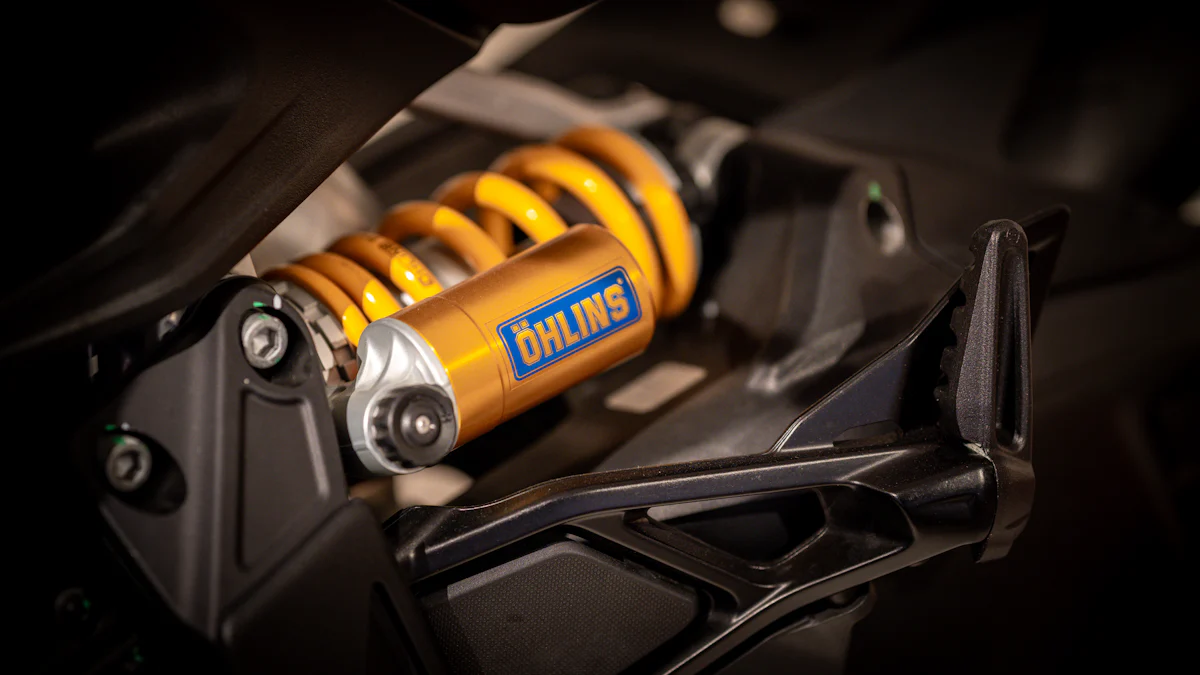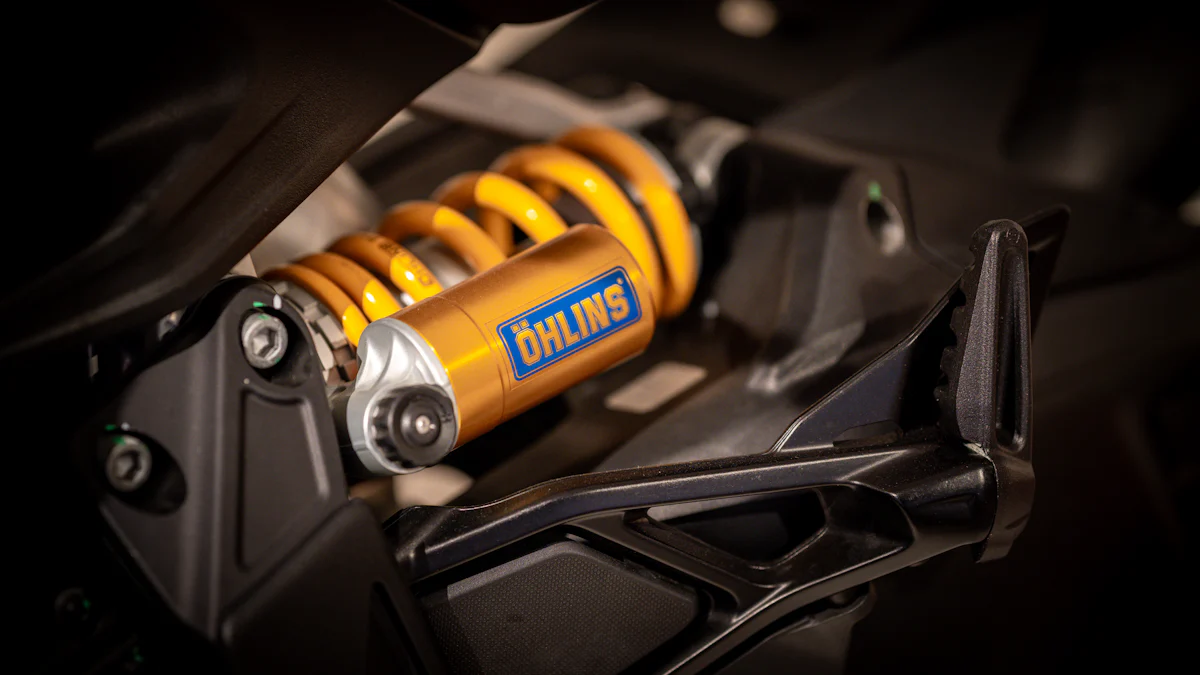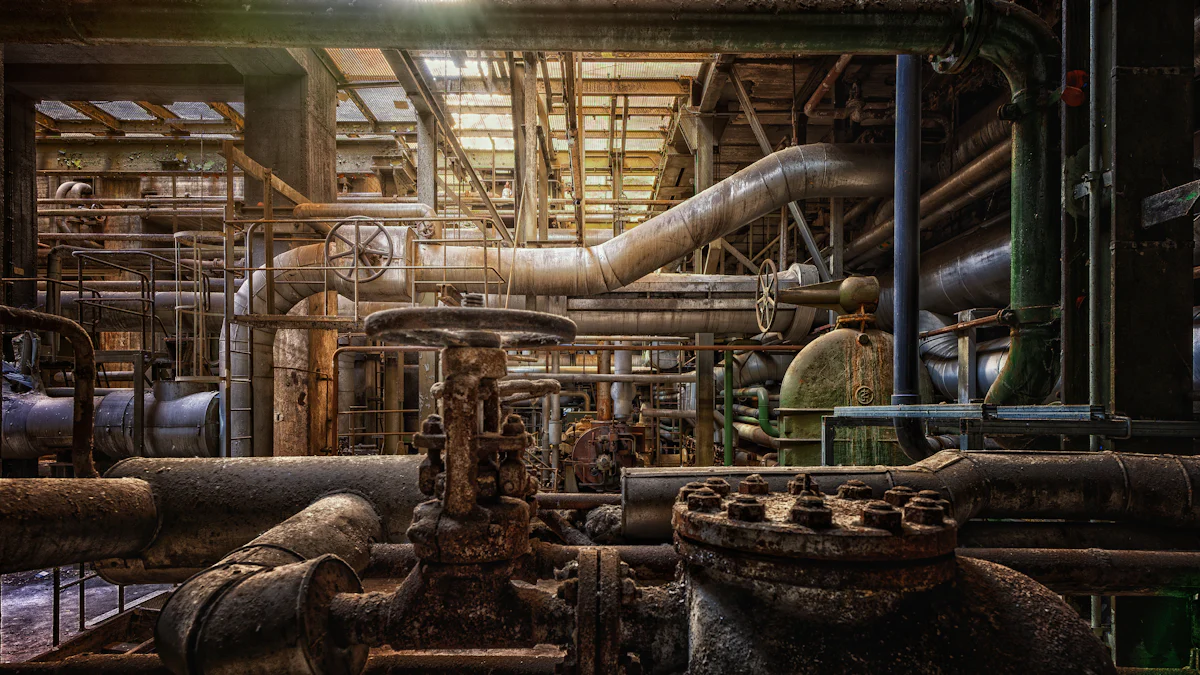Why You Should Invest in High Performance Dampers

Dampers play a crucial role in controlling vibrations, shocks, and oscillations in various mechanical systems. High performance dampers stand out due to their advanced capabilities and applications across multiple industries. These specialized components enhance operational stability and longevity, making them indispensable in sectors like automotive, aerospace, and industrial machinery. The purpose of this blog is to delve into the numerous benefits and features of high performance dampers, highlighting their importance and potential for significant improvements in performance and safety.
Understanding High Performance Dampers

What Are High Performance Dampers?
Definition and Basic Function
High performance dampers are advanced components designed to control vibrations, shocks, and oscillations in mechanical systems. These dampers utilize cutting-edge technologies to enhance operational stability and extend the lifespan of machinery and vehicles. By mitigating unwanted movements, high performance dampers ensure smoother and more reliable performance.
Types of High Performance Dampers
Several types of high performance dampers exist, each tailored for specific applications:
- Monotube Dampers: Known for their ability to work harder and feature larger pistons, these dampers excel in high-performance scenarios.
- Adaptive Dampers: Designed to offer better comfort and body control, adaptive dampers adjust to dynamic operating conditions.
- High-Damping Rubber (HDR) Dampers: These dampers provide temperature stability and easy maintenance, making them ideal for vibration reduction in various structures.
- Fluidampr Performance Dampers: Featuring an all-steel design with silicone fluid, these dampers offer superior quality and durability, especially in professional motorsports.
How They Differ from Standard Dampers
Material and Construction
High performance dampers often use superior materials and construction techniques compared to standard dampers. For instance, Fluidampr Performance Dampers consist of three main components: the housing, an inertia ring, and silicone fluid. Precision machining and laser welding ensure a leak-proof seal, enhancing durability. In contrast, standard dampers typically use elastomer designs that can degrade over time.
Performance Metrics
High performance dampers outperform standard dampers in several key metrics:
- Durability: High performance dampers resist wear and tear better, ensuring longer operational life.
- Efficiency: These dampers offer energy savings by optimizing performance under various conditions.
- Safety: Consistent performance and reduced risk of failure make high performance dampers more reliable.
- Adaptability: Advanced features like adjustable valving and smart control systems allow high performance dampers to adapt to changing conditions, providing superior damping performance.
Benefits of High Performance Dampers
Enhanced Durability
Longevity and Maintenance
High performance dampers offer exceptional longevity. Advanced materials and construction techniques contribute to their extended lifespan. For instance, high performance dampers often utilize precision machining and laser welding. These methods ensure a leak-proof seal, reducing the need for frequent maintenance. The use of high-quality steel and other durable materials further enhances their durability.
Resistance to Wear and Tear
High performance dampers resist wear and tear better than standard dampers. Superior materials and construction techniques play a crucial role in this resistance. For example, monotube dampers feature larger pistons that can handle more stress. This design reduces the likelihood of failure under high-performance conditions. Additionally, high damping rubber (HDR) dampers provide excellent temperature stability. This feature ensures consistent performance even in extreme conditions.
Improved Efficiency
Energy Savings
High performance dampers contribute to significant energy savings. By optimizing performance, these dampers reduce the energy required for various operations. For example, fluidampr performance dampers use silicone fluid to absorb vibrations efficiently. This design minimizes energy loss, leading to better fuel efficiency in automotive applications. In industrial settings, high performance dampers enhance thermal efficiency. This improvement reduces the overall energy consumption of machinery.
Optimal Performance in Various Conditions
High performance dampers ensure optimal performance across different conditions. Adaptive dampers adjust to dynamic operating environments, providing superior comfort and control. These dampers excel in both high-speed and low-speed scenarios. In the automotive industry, high performance dampers improve handling and ride comfort. This enhancement leads to a smoother driving experience. In civil engineering, dampers effectively control vibrations in structures like bridges. This application demonstrates their versatility and reliability.
Safety and Reliability
Consistent Performance
High performance dampers deliver consistent performance. Advanced features like adjustable valving and smart control systems enable this consistency. These dampers adapt to changing conditions, maintaining optimal damping performance. This adaptability ensures reliable operation in various applications. For example, high performance dampers in passenger vehicles improve handling stability. This improvement enhances safety by providing better control during maneuvers.
Reduced Risk of Failure
High performance dampers significantly reduce the risk of failure. Superior materials and construction techniques contribute to their reliability. For instance, metal dampers offer high load-bearing capacity and precision in vibration control. This design minimizes the chances of mechanical failure. In addition, high-temperature dampers provide operational reliability in adverse conditions. This feature ensures the continued safety and functionality of machinery and vehicles.
Applications of High Performance Dampers

Automotive Industry
Suspension Systems
High performance dampers play a crucial role in automotive suspension systems. These dampers enhance vehicle stability and handling. By absorbing shocks and vibrations, high performance dampers provide a smoother ride. The use of monotube dampers, with their larger pistons, ensures better stress management. This results in improved cornering and reduced body roll. High performance dampers also contribute to less tire wear, extending tire life.
Vibration Control
In the automotive industry, controlling vibrations is essential for comfort and safety. High performance dampers excel in this area. These dampers minimize vibrations from the engine and road. This leads to a quieter cabin and a more pleasant driving experience. Fluidampr performance dampers, with their silicone fluid design, offer superior vibration absorption. This technology reduces engine vibrations, enhancing overall vehicle performance. High performance dampers also improve car audio sound quality by reducing unwanted noise.
Construction and Infrastructure
Building Stability
High performance dampers are vital for maintaining building stability. These dampers control structural vibrations caused by wind and other forces. High damping rubber (HDR) dampers are particularly effective in this application. HDR dampers provide temperature stability and easy maintenance. This makes them ideal for long-term use in buildings. By reducing vibrations, high performance dampers extend the lifespan of structures. This contributes to safer and more durable buildings.
Seismic Protection
Seismic protection is another critical application of high performance dampers. These dampers help buildings withstand earthquakes. Adaptive dampers adjust to dynamic seismic forces, providing optimal protection. High performance dampers absorb and dissipate seismic energy. This reduces the risk of structural damage during an earthquake. The use of high performance dampers in seismic protection enhances the safety of occupants. This makes them an essential component in earthquake-prone areas.
Industrial Machinery
Noise Reduction
High performance dampers significantly reduce noise in industrial machinery. These dampers absorb vibrations that cause noise. This leads to a quieter working environment. Metal dampers, with their high load-bearing capacity, are particularly effective. These dampers provide precision in vibration control. This minimizes mechanical noise and improves operational efficiency. High performance dampers also contribute to better worker safety by reducing noise levels.
Equipment Longevity
High performance dampers extend the lifespan of industrial equipment. These dampers protect machinery from wear and tear. By absorbing vibrations and shocks, high performance dampers reduce mechanical stress. This leads to fewer breakdowns and lower maintenance costs. High-temperature dampers offer operational reliability in adverse conditions. This ensures continuous functionality and safety of industrial machinery. The use of high performance dampers enhances equipment longevity and performance.
High performance dampers offer numerous benefits, including enhanced durability, improved efficiency, and superior safety. These dampers provide long-term value and cost-effectiveness by reducing maintenance costs and extending equipment lifespan. Industries that invest in high performance dampers position themselves for immediate efficiency gains and long-term sustainability. High performance dampers optimize energy consumption and minimize emissions, contributing to substantial energy cost savings. Investing in high performance dampers is a strategic move towards achieving operational excellence and environmental responsibility.
Post time: Jul-23-2024



